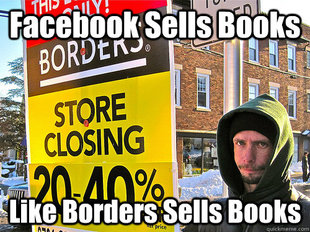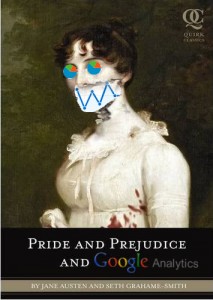Logically, grotesque noir can be defined by a mashup of the traits that define grotesque and noir separately, so perhaps we can best define the combined term by investigating the individual components. What is noir fiction? Noir fiction is not so much a genre as it is an overlay to existing genres. Most people probably think of early black and white detective films as representative of noir, and while those films may represent some of the overlay's qualities, in truth film noir can generally be more accurately (more specifically) categorized as detective noir or mystery noir. So what exactly is this mysterious noir overlay? There are a few fantastic attempts at definition out there. A couple of the most important, I think, are: From Noir Fiction Is About Losers, Not Private Eyes by Otto Penzler: Noir is about losers. The characters in these existential, nihilistic tales are doomed. They may…
Tag Archives Caleb J. Ross
Preorder details for my new novel, I Didn't Mean to be Kevin are forthcoming. Until then, get all excited with this synopsis. Tis the season for Caleb, more Caleb, and a little bit of Jesus (if there's time).
 (part of my ongoing Search Engine Optimization for Authors series[ref]I understand that paid search ads aren’t traditionally umbrellaed under search engine optimization. However, because tracking and optimization is involved, I’m including it in the series[/ref])
Part of being a great author-marketer is knowing how to filter promotion time wastes from time worthwhiles. Some options are simple to filter. “Should I do a Goodreads.com giveaway to attract potential readers?” Yes (all it costs is the price of a few copies of a book to receive interest from hundreds of readers). “Should I rent a billboard for a month?” No (billboards offer either 1) travel-oriented products/services or 2) products with a high profit margin). Some options aren’t so simple. And in the case of the Facebook ad, prominence adds to the should I or shouldn’t I debate. Well, I’m here to help.
(part of my ongoing Search Engine Optimization for Authors series[ref]I understand that paid search ads aren’t traditionally umbrellaed under search engine optimization. However, because tracking and optimization is involved, I’m including it in the series[/ref])
Part of being a great author-marketer is knowing how to filter promotion time wastes from time worthwhiles. Some options are simple to filter. “Should I do a Goodreads.com giveaway to attract potential readers?” Yes (all it costs is the price of a few copies of a book to receive interest from hundreds of readers). “Should I rent a billboard for a month?” No (billboards offer either 1) travel-oriented products/services or 2) products with a high profit margin). Some options aren’t so simple. And in the case of the Facebook ad, prominence adds to the should I or shouldn’t I debate. Well, I’m here to help.
 How many times did readers download your sample chapters? How many times did readers view your new book trailer? How many times did your website visitors click a button to buy one of your books? How many times did someone click a link to read one of your stories posted at another website? All of these items can be tracked using Event Tracking in Google Analytics.
What is Event Tracking? I’ll leave the details up to Google itself, but for our purposes think of Event Tracking as a second, deeper level of website analytics. Most of you are probably using your analytics program primarily to track how users interact with your website on a macro level (how many visits, most popular pages, how long visitors stay, etc). Event Tracking allows a micro level of tracking, where actual clicks and downloads on specific pages can be tracked.
Anywhere a user can click, Event Tracking can be used. Let’s look at an example that an author could definitely use.
How many times did readers download your sample chapters? How many times did readers view your new book trailer? How many times did your website visitors click a button to buy one of your books? How many times did someone click a link to read one of your stories posted at another website? All of these items can be tracked using Event Tracking in Google Analytics.
What is Event Tracking? I’ll leave the details up to Google itself, but for our purposes think of Event Tracking as a second, deeper level of website analytics. Most of you are probably using your analytics program primarily to track how users interact with your website on a macro level (how many visits, most popular pages, how long visitors stay, etc). Event Tracking allows a micro level of tracking, where actual clicks and downloads on specific pages can be tracked.
Anywhere a user can click, Event Tracking can be used. Let’s look at an example that an author could definitely use.
 (Announcing a new post category: Search Engine Optimization for Authors. Well, it’s new in that I’ve finally given a name to it, but as you can see by clicking over to the category, there are a few past posts that fit within this category)
If you’ve read Christina Katz’s fantastic Get Known Before the Book Deal, or have been at all concerned about building that illusive “platform” so many industry types talk about then either 1) you are an author with a career somewhere between beginning and burgeoning, or 2) you’re interested in the publishing industry for slightly different, though I’m sure equally masochistic, reasons. Either way, one of the cornerstones of author presence in our Web 2.0 world (aren’t we at Web 2.1 yet, at least?) is the blog. Despite its cornerstone status, many authors aren’t sure where to begin. Or worse, they take the leap into bloggery without considering how to leverage such a forum for their own career goals (okay, time to put on the Purina checkerboard slacks, you sleazy salesman).
(Announcing a new post category: Search Engine Optimization for Authors. Well, it’s new in that I’ve finally given a name to it, but as you can see by clicking over to the category, there are a few past posts that fit within this category)
If you’ve read Christina Katz’s fantastic Get Known Before the Book Deal, or have been at all concerned about building that illusive “platform” so many industry types talk about then either 1) you are an author with a career somewhere between beginning and burgeoning, or 2) you’re interested in the publishing industry for slightly different, though I’m sure equally masochistic, reasons. Either way, one of the cornerstones of author presence in our Web 2.0 world (aren’t we at Web 2.1 yet, at least?) is the blog. Despite its cornerstone status, many authors aren’t sure where to begin. Or worse, they take the leap into bloggery without considering how to leverage such a forum for their own career goals (okay, time to put on the Purina checkerboard slacks, you sleazy salesman).
(part of my ongoing Unexpected Literary References series) Though the wonderful Pablo D'Stair recently called me out on the possible inaccuracy of calling this series "unexpected" literary references, I'm too far in to change the name (re: too lazy to change the name). And this latest find, from last week's episode of The Simpsons, does not help defend any point I may have had about the unexpectedness of lit references in cartoons. Perhaps the series should be called "Great Unexpected Literary References For Those Who Don't Watch Much TV But Also Don't Read Much So Therefore Probably Only Bake Cookies And Make Crafts With Hot Glue Guns." In this episode (S23E7 – "The Man in the Blue Flannel Pants") Bart learns that he actually enjoys reading, and in doing so must hide his new love from Nelson and the rest of the bullies. Why is this reference blog worthy? First, I'm…
[blackbirdpie url="http://twitter.com/calebjross/status/138063727013527552"] NaNoWriMo is a month-long event in which writers of all experience levels attempt to write a 50,000 word novel during the month of November. Sounds good, right? There is a sense of accomplishment for accomplishment's sake with vomiting so many words, with setting and meeting a goal. However, I'm not so couch-therapy optimistic about it. Send any comments on this episode, or any writing and publishing related questions to caleb [at] calebjross.com. I will answer them in a future episode. Show Notes and Mentions National Novel Writing Month official website Follow comedian Doug Wilson at @idigthedoug

